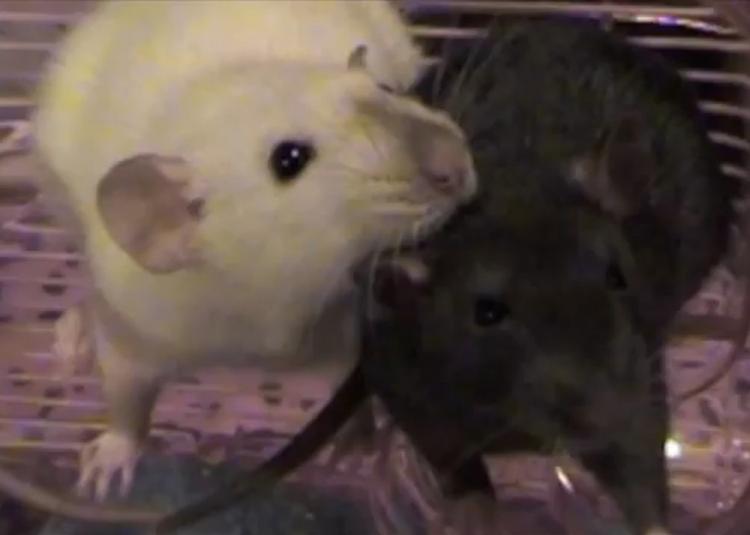Primates may not be the only animals capable of relating empathically to others, according to a new study published in the journal Science on Dec. 9.
Scientists at the University of Chicago found that most rats will free stressed cage mates from a trap, despite the absence of a reward.
In contrast to emotional contagion when an animal shares the distress of another and can become overwhelmed and immobilized by fear, empathy allows an animal to keep perspective and emotional separation.
“This is the first evidence of helping behavior triggered by empathy in rats,” said study co-author Jean Decety in a press release. “There are a lot of ideas in the literature showing that empathy is not unique to humans, and it has been well demonstrated in apes, but in rodents it was not very clear.”
“We put together in one series of experiments evidence of helping behavior based on empathy in rodents, and that’s really the first time it’s been seen.”
Test rats learned to rapidly release cage mates from a container, maintaining sufficient calm to open the container, rather than simply run around or freeze due to emotional contagion.
“We are not training these rats in any way,” said first author Inbal Ben-Ami Bartal in the release. “These rats are learning because they are motivated by something internal.”
“We’re not showing them how to open the door, they don’t get any previous exposure on opening the door, and it’s hard to open the door,” she explained. “But they keep trying and trying, and it eventually works.”
In control testing, the rats did not open empty containers nor containers holding other objects. However, they freed the trapped rats despite being unable to socialize together afterwards, which is a recognized reward.
Also, despite having access to a food treat, they first freed the trapped cage mate before sharing the food.
“That was very compelling,” said co-author Peggy Mason in the release. “It said to us that essentially helping their cage mate is on a par with chocolate.”
“He can hog the entire chocolate stash if he wanted to, and he does not,” she added. “We were shocked.”
Interestingly, more female rats than males became door-openers, suggesting that females are more empathetic than males.
“This emotional motivation, arguably the rodent homolog of empathy, appears to drive the pro-social behavior observed in the present study,” the authors concluded in their paper.







